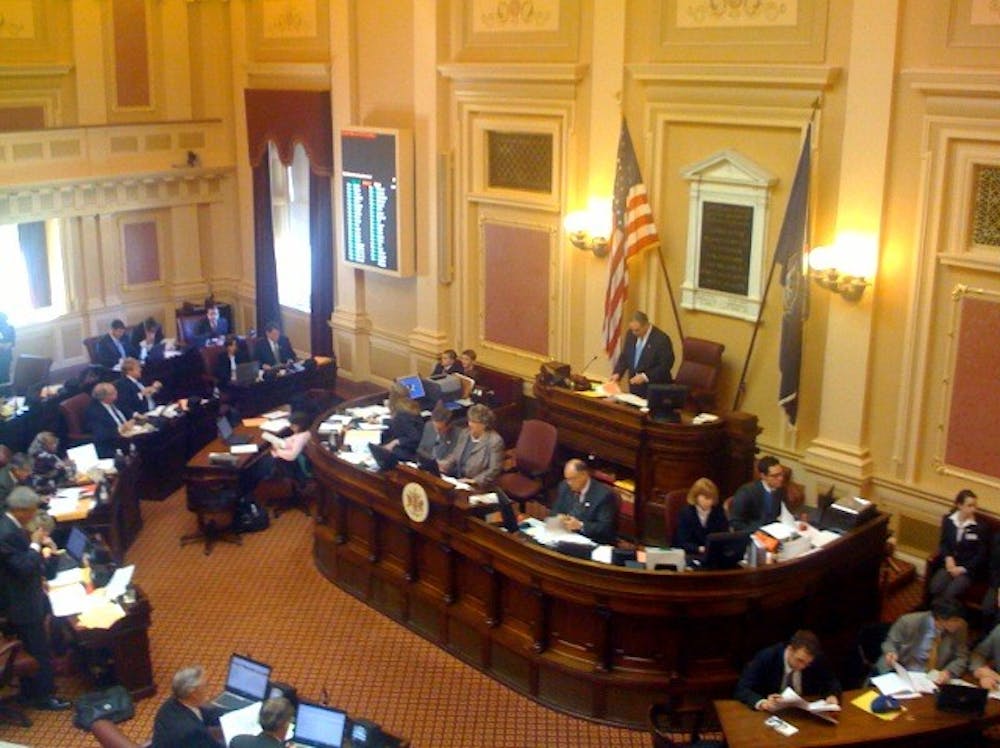The Virginia House of Delegates recently passed legislation which aims to aid survivors of sexual assault and protect students on college campuses.
House Bill 1928, introduced by Del. Rob Bell, R-Charlottesville, would require adding additional violent misdemeanors to the Virginia DNA database. Bell also introduced HB 1930 to require colleges to provide independent counseling services to survivors, inform them of their legal options and mandate reporting of sexual assault where necessary to protect the safety of the public and confidential review of all cases by a team including law enforcement officials.
“Sexual assaults on campus has been a concern for some time,” Bell said in an email. “The Crime Commission looked at the campus police issue in 2011. The goal is to do all we can to support the victim, while also preventing the next victim.
Bell, a Class of 1988 graduate, said he knows the issue has been pertinent on Grounds.
“This has been an issue since I was at U.Va.,” he said, “So I'm sure it is something we will continue to work on.”
Bell said that under the new bill, reports made to a responsible party will be transmitted to the Title IX coordinator. The coordinator will then assemble a review committee consisting of him or herself, a representative from the Student Affairs Office and a representative from local law enforcement to review the report. The report can remain confidential at the request of the survivor.
Identifying information about the survivor will only be released if it is “necessary to protect the health or safety of the student or other individuals.” A review will also be conducted by the local Commonwealth’s Attorney.
Del. Jimmie Massie, R-Henrico, introduced HB 1785, requiring campus police to notify the local Commonwealth’s Attorney within 48 hours of a survivor-initiated investigation.
Massie said in light of the erroneously-reported Rolling Stone article and the tragedy of Hannah Graham it has become clear that assault problems exist at universities both public and private.
“Our objective is to make our campuses as safe a place as we possibly can and to help the victims, catch the bad persons, and do all of it in a fair way,” Massie said.
Massie said the initial reaction in Richmond was to institute mandatory reporting, but after working through it and speaking with survivors it became clear that in order to help survivors and apprehend those responsible, they needed to work together closely.
“There were a number of victim advocate groups that spoke to us and we had a lot of University students coming through here,” Massie said. “The message was if you want to help the victims, if you want to catch bad persons, and do all that in fair manner, you need victims to come in and feel comfortable coming in and talking to you.”
Massie said that in drafting the bills, comfort and respect for survivors was a high priority.
“They’ve lost control of their body in a private situation,” Massie said. “The last thing they want is to lose control of information in a public manner.”
Massie referenced his bill, Bell’s bill and a third bill, which requires a sexual assault conviction be marked on one’s transcript if found guilty, as results stemming from a concerted effort to address sexual assault on college campuses.
“I think we’re going to have these three bills, or some form of them are going to come out this year and then we’re going to take a breather and see how they do,” Massie said.







